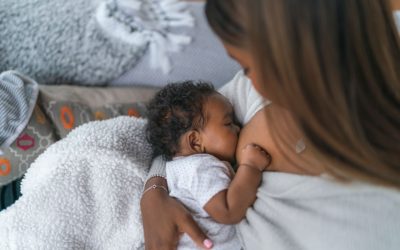Immunizations are vaccines that stimulate the body to produce antibodies to prevent a particular disease and keep your little one healthy. As a new mum, keeping up with your baby’s immunization routine is necessary. You may be anxious about making these visits, but they are essential. You may also worry that getting multiple vaccines at once might be too much for your baby’s immune system, but your little one can handle those antigens.
Vaccination Types and Schedule for Your Child
DTap Vaccine: A vaccine that protects against severe whooping cough, diphtheria, and tetanus.
- At 2 months
- At 4 months
- At 6 months
- Between 16 to 18 months
Hepatitis B Vaccine: A vaccine that protects against Hepatitis B, which can cause liver disease.
- At birth
- Between 1 to 2 months
- Between 6 to 18 months
Hib Vaccine: A vaccine that protects against Haemophilus influenzae Type B bacteria that causes meningitis, leading to pneumonia and epiglottis.
- At 2 months
- At 4 months
- At 6 months (if needed)
- Between 12 to 15 months
MMR Vaccine: A vaccine that protects against measles, mumps, rubella, and encephalitis (brain swelling).
- Between 12 to 15 months
Pneumococcal (PCV): A vaccine that protects against pneumococcal disease, meningitis, pneumonia, and ear infection.
- At 2 months
- At 4 months
- At 6 months
- Between 12 to 15 months
Varicella Vaccine: A vaccine that protects against chicken pox.
- Between 12 to 15 months
- Between 4 to 6 years
Rotavirus Vaccine: A vaccine that protects against rotavirus that can cause severe diarrhea, vomiting, fever, and dehydration.
- At 2 months
- At 4 months
- At 6 months
What are the risks of delaying vaccines until my baby is older?
You may wonder if it will be better to delay some vaccines until your baby is older, but there are significant risks with making this decision. Children under two years of are at a higher risk of serious complications when infected.
We strongly recommend that your baby gets their shots on the immunization schedule because the timing is well tested and considers when your child is most susceptible to the disease.
Should I postpone vaccination when my baby is sick?
Postponing your child’s immunization schedule depends on the nature of the illness and how sick your child is. Deciding to delay your child’s vaccination is for their comfort and to prevent them from having side effects alongside their symptoms. The vaccine, however, would still be effective.
Many health specialists suggest postponing vaccination appointments if your child has:
- A high fever
- Flu, pneumonia, or other serious infections.
- A diagnosis of fever
- Any uncommon health condition or one that requires a high dose of medications
However, if your child has a minor illness like a mild cold, there is no need to delay their vaccination.




